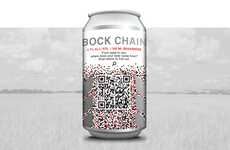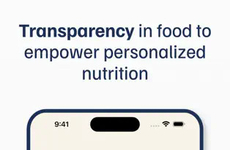
Walmart and IBM are Fighting for Transparency in the Food Industry
Ellen Smith — June 14, 2018 — Lifestyle
References: www-03.ibm & qz
Walmart and IBM are working collaboratively to create more transparency in the food industry, and are using a new blockchain-powered labeling system to do so.
Currently, the grocery store industry lacks a sufficient method of pulling expired food from the shelves, something that IBM is hoping to change. While still in a pilot phase, this new system is able to "track food throughout the complex global supply chain," with the overall goal of reducing the amount of foodbourne illnesses. Using blockchain technology, this new system will be able to track each item in the store, while documenting its origins and distributor.
This means that if a consumer becomes infected with E.Coli that's traced to a particular produce, the company would quickly discover where the batch came from and where else it has been shipped to. This innovative system would add a level of connectivity and transparency to grocery stores, distributors and farmers, while also stopping the spread of illness.
Currently, the grocery store industry lacks a sufficient method of pulling expired food from the shelves, something that IBM is hoping to change. While still in a pilot phase, this new system is able to "track food throughout the complex global supply chain," with the overall goal of reducing the amount of foodbourne illnesses. Using blockchain technology, this new system will be able to track each item in the store, while documenting its origins and distributor.
This means that if a consumer becomes infected with E.Coli that's traced to a particular produce, the company would quickly discover where the batch came from and where else it has been shipped to. This innovative system would add a level of connectivity and transparency to grocery stores, distributors and farmers, while also stopping the spread of illness.
Trend Themes
1. Blockchain-powered Labeling - Implementing blockchain technology for labeling food products allows for greater traceability and transparency in the supply chain.
2. Global Supply Chain Tracking - Developing systems to track food items throughout the complex global supply chain can help reduce the spread of foodborne illnesses.
3. Connectivity and Transparency - Creating a connected and transparent system in grocery stores, distributors, and farmers can enhance accountability and consumer safety.
Industry Implications
1. Grocery Store Industry - Implementing blockchain-powered labeling systems can disrupt the current methods of handling expired food and improve food safety measures in grocery stores.
2. Supply Chain Management - Developing technologies for tracking food items throughout the supply chain can revolutionize supply chain management and mitigate risks associated with foodborne illnesses.
3. Food Agriculture - Introducing transparency and traceability in the food industry can create opportunities for innovative practices and improve consumer trust in the agricultural sector.
6.2
Score
Popularity
Activity
Freshness























